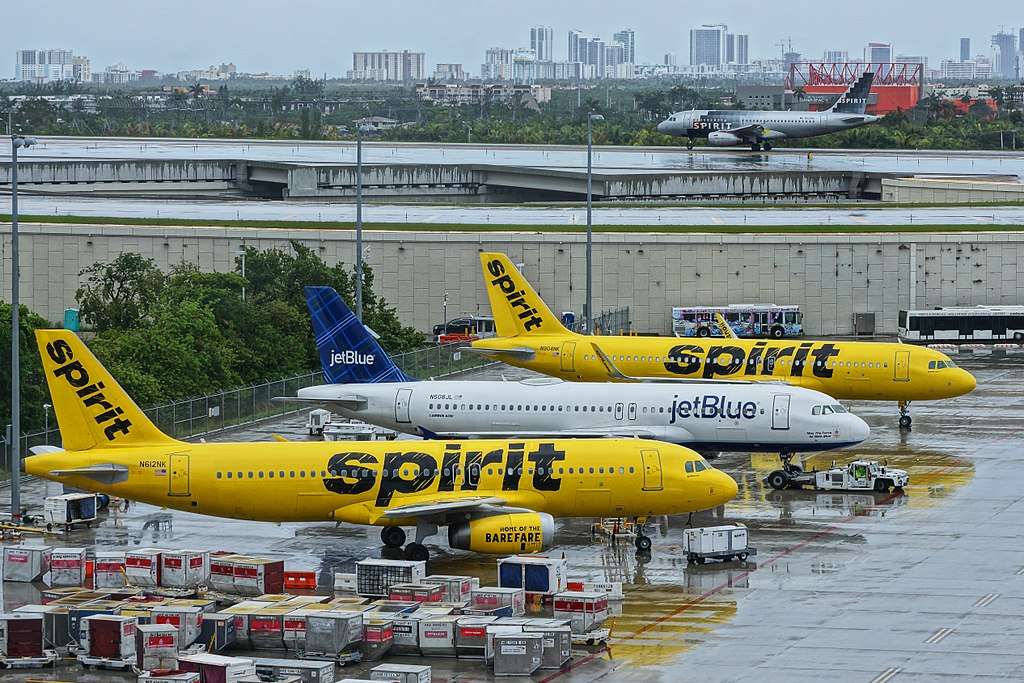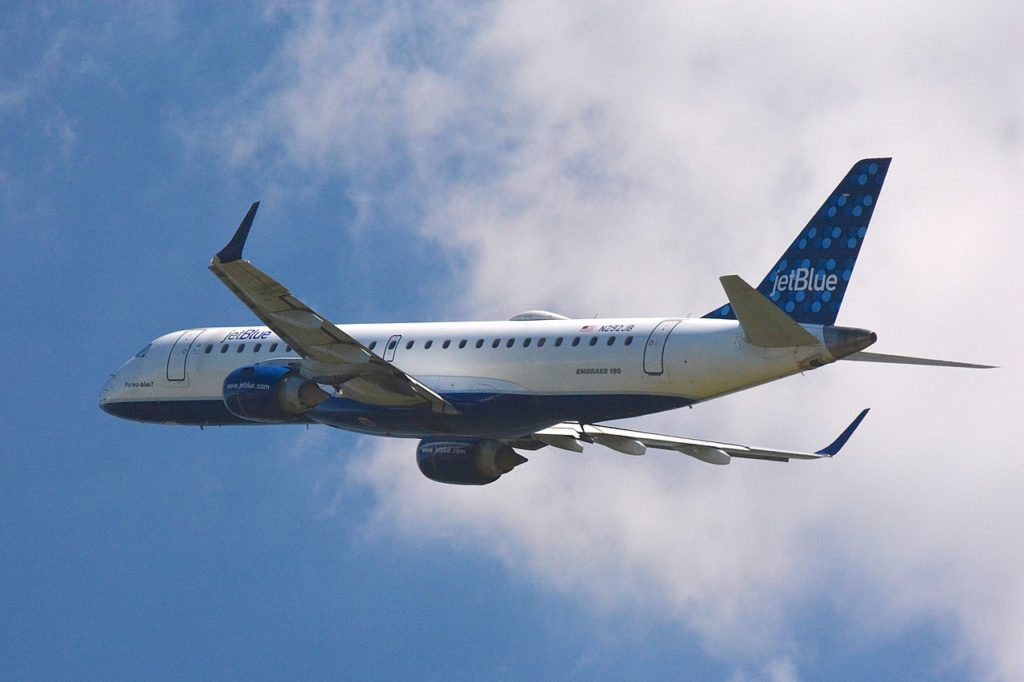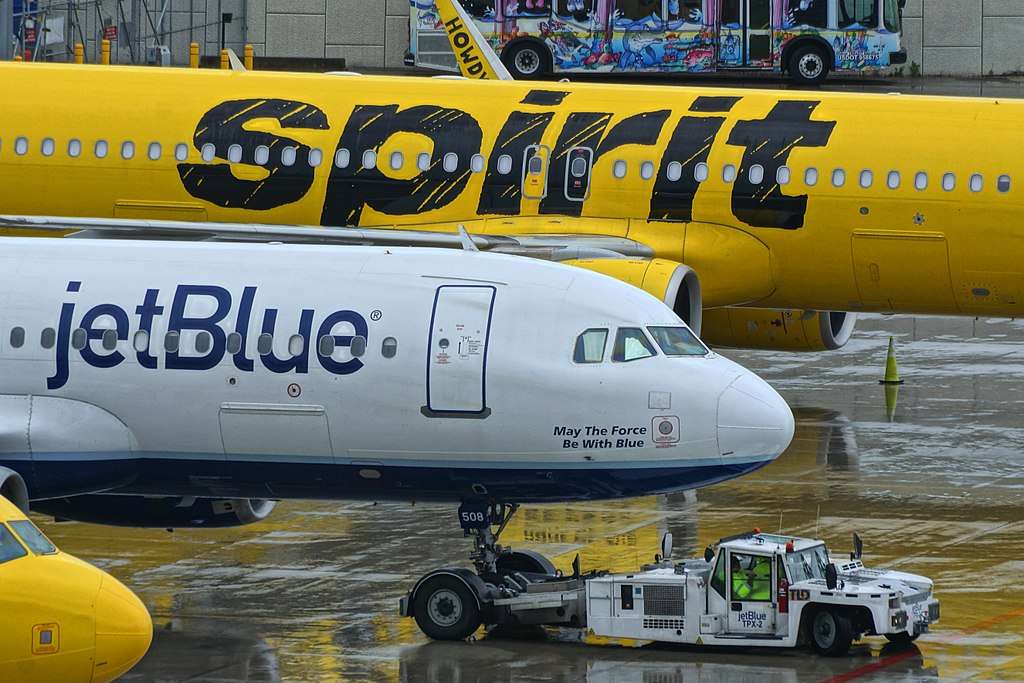The recent cancellation of the $3.8 billion merger agreement between JetBlue Airways and Spirit Airlines has been met with mixed reactions in the airline industry. This high-profile deal was blocked by the US Department of Justice (DOJ) on anti-competition concerns.
Expert opinion on the outcome was always divided. Some experts predicted it would be blocked, while others believed it had a chance of going through with certain concessions.
Nevertheless, the decision raises crucial questions about the future of airline consolidations, its impact on consumers, and the broader landscape of the air travel sector.
Reduced Competition: A Cause for Concern
The primary concern surrounding the merger revolved around reduced competition. Combining JetBlue and Spirit, the fifth and eighth largest US airlines respectively, would have created a formidable competitor.
This would be a disruptor, potentially impacting fare prices and flight options on certain routes. The DOJ argued that the merger would have significantly reduced competition. This is particularly so on popular routes where both airlines offered service.
This could have led to higher fares, fewer flight choices, and ultimately, a less competitive airline landscape for consumers.

Consolidation: A Continuing Trend
While the JetBlue-Spirit merger fell through, the desire for consolidation within the airline industry is likely to continue.
Airlines face numerous challenges, including rising fuel costs, labor shortages, and intense competition from low-cost carriers.
Merging with rivals offers airlines a potential path towards increased operational efficiency, cost savings, and a stronger market presence.
However, the failed JetBlue-Spirit deal now sets a precedent for how antitrust regulators will evaluate future airline mergers.
This could make it more difficult for similar deals to be approved, potentially slowing down the pace of consolidation in the industry.
Uncertainty for Airlines and Travelers
The cancelled merger creates a sense of uncertainty for both airlines and travelers. Airlines may need to adjust their growth plans and strategies in the wake of this development.
This could involve focusing on organic growth through route expansion, fleet modernization, and improving customer service.
Travelers, on the other hand, may face limited options and potentially higher fares in the long run. With fewer players in the market, airlines may have more leeway to raise prices, particularly on routes where competition is limited.
While the immediate impact might be minimal, the long-term consequences of reduced competition remain a concern for consumers.


Increased Scrutiny and a Shift in Strategy
The JetBlue-Spirit precedent case highlights the increased scrutiny airlines face regarding mergers and acquisitions.
It will likely act as a disincentive for airlines considering undertaking a typically long and expensive merger process in future.
This could lead to a more cautious approach from airlines and potentially encourage them to explore alternative growth strategies. The alternatives could be the forming of alliances with other carriers or investing in niche markets.
Additionally, airlines may focus on improving operational efficiency and customer service to differentiate themselves in a competitive landscape.

Dominance on Key Routes: JetBlue-Spirit Concerns
Industry analysts expressed concerns from the outset about the merger, particularly regarding the combined dominance of low-cost carriers (LCCs) on critical routes.
Data from OAG, a leading aviation data provider, reveals the specific issues that ultimately swayed regulators. These statistics highlight the significant emphasis industry leaders place on dominating specific routes, not just overall market share.
- A combined JetBlue-Spirit would have controlled a staggering 20% of capacity out of both Florida and New York, two major air travel hubs.
- In New York, a combined entity would have faced only one major competitor, Delta, which controls 27% of the market share. In Florida, American Airlines would remain the top competitor (29%), but the picture becomes even more concerning at specific airports:
- JetBlue-Spirit would have controlled nearly 40% of capacity at New York JFK airport and over 50% at Fort Lauderdale/Hollywood International Airport.
These figures illustrate the potential for reduced competition and price hikes on specific routes, ultimately forming the basis of the DOJ’s decision to block the merger.
Looking Forward: A Complex Landscape
The cancellation of the JetBlue-Spirit merger signifies a complex and evolving landscape for the airline industry.
While the immediate consequences may not be readily apparent, the long-term implications for competition, fares, and consumer choice are significant.
As the industry navigates these challenges, regulators, airlines, and travelers alike will be closely watching how the air travel sector unfolds in the coming years.

Click the banner to subscribe to our weekly newsleter.

Click the photo to join our WhatsApp channel so then you can stay up to date with everything going on in the aviation industry!









